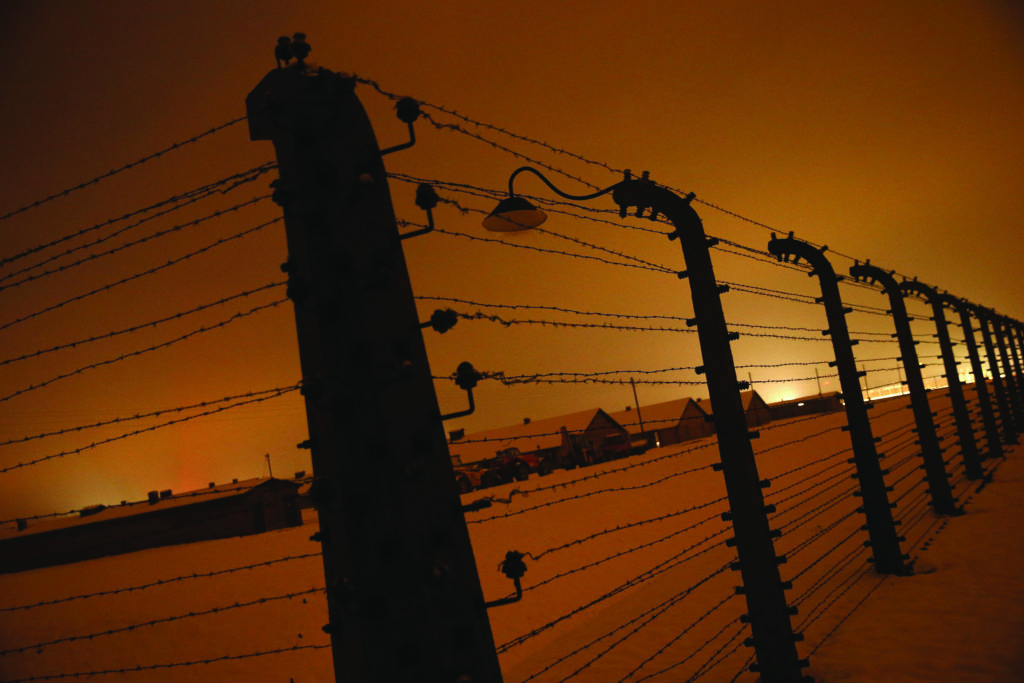We all carry the stories of our ancestors. I walk among the victims. Others my age are weighed down by the burden of the perpetrators.
In 1942, an 81-year-old Dutch Jewish woman was dragged from her home in Amsterdam, sick and frail, and forced onto a train to Westerbork transit camp. The Nazis were rounding up Jews, among them my family. My great-grandmother, Betje, hardly survived the train journey. She died a few days later. Perhaps she was lucky.
One hundred and nineteen other members of my family found their deaths in the gas chambers of Auschwitz, Sobibor and Treblinka. I sit with the death certificates of nine of them. Seventy one years after the end of World War II and we, the second and third generations, are still haunted.
Rainer Hoess shows me the number tattooed on to his chest. It’s the same number Eva Mozes Kor, a holocaust survivor, had tattooed on to her arm when she was herded into Auschwitz as a child. Her parents and two older sisters died there. She and her twin sister miraculously survived the murderous experiments conducted on them at the camp.
Hoess has adopted Kor as his grandmother. Except that he isn’t Jewish. Far from it. His grandfather, Rudolf, was the commandant of Auschwitz. Each day, he’d oversee the murder of several thousand people, then come home to play with his children.
Loading...
Hoess’s grandfather ordered the death of my great-grandmother and my entire family, bar a second cousin who survived while in hiding.
I meet Hoess at the entrance to Auschwitz. We stare through the barbed wire at the ruins of chimneys where Jewish inmates were forced to burn the bodies of people who’d just been gassed.
“It is a difficult decision for me to meet you,” I confess.
He understands.
“I cannot forgive or forget,” I whisper.
He says he’s not asking me to. Only survivors can do that and most have chosen not to.
We’re almost the same age but whereas I grew up in South Africa with a handful of stories about all the great aunts and uncles and cousins I lost, he grew up in Germany among former SS (Schutzstaffel) officers who would visit his house frequently.
It was only when he was a teenager that he understood his grandfather had been responsible for the murder of one million people and he decided to break all ties with his family. But he keeps the surname Hoess to show that every person has a choice in life.

A concentration camp in Auschwitz, Poland
“What my grandfather did was wrong,” he says. “But if we as the future generations don’t come together, how we can we stop something like The Holocaust from happening again?”
The ghosts of my dead ancestors haunt me.
It is midnight in Auschwitz. I’m filming a documentary for Russia Today TV about Flip Slier, a 19-year-old second cousin who was gassed in the Sobibor death camp.
Just over a decade ago, a foreman was renovating a house in Vrolik Straat, Amsterdam, not far from where my great-grandmother was taken when he came across a box of letters hidden in the roof.
They were written by Slier to his parents from a labor camp in the early years of the war when Jews still did not know the fate awaiting them and the Nazis were trying to keep up a front of normality.
In 86 letters and postcards, he encourages his parents to keep courage, promising that they will all be together again one day. Slier never saw his parents again. They too were gassed. The letters remained hidden for more than a half a century.
Auschwitz was hell. Auschwitz is hell. And to experience hell at night when everything is dark, when there are shadows everywhere and where the air is still and quiet, is very frightening.
I meet the post lady who at 85 years old still remembers, as a little girl, hiding the letters Slier gave her through the barbed wire under her skirt so she could post them to his parents. I meet the wife of his best friend, Karel van Der Schaaf, who smuggled food into the camp for him. I meet the son of a pastor who encouraged every family in his village to risk their lives during the war and hide a Jewish person. Not one of them is Jewish and not one of them thought twice about what they were doing.
We each have a choice. I walk with the victims but choose to move on. Their stories guide the way.
– Slier is an award-winning war correspondent, CEO of NewshoundMedia and Middle East bureau chief of Russia Today. Her grandfather, Isak, was a diamond cutter who immigrated to South Africa from Holland in the early 1920s.
Loading...
